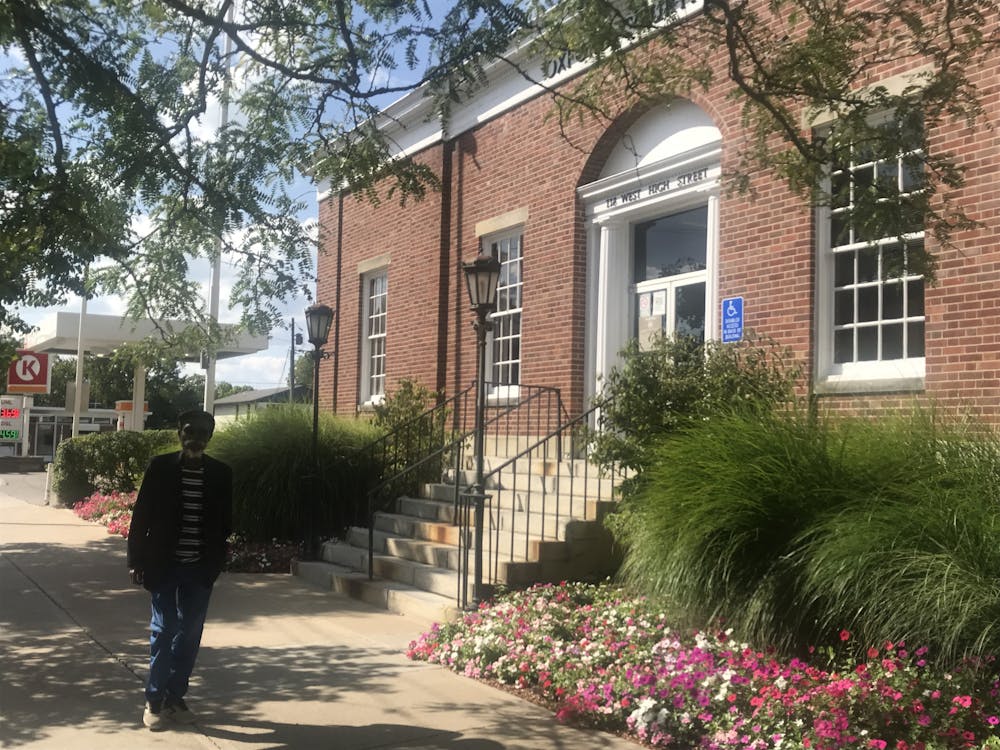A local man filed a motion to amend the judgment after his lawsuit against the City of Oxford for COVID-19 policies was dismissed two weeks prior.
Tate Prows, who was born and raised in Oxford, filed a lawsuit in November 2022 for Ordinance 3579, which banned gatherings of more than 10 people and enforced fines for ordinance violations. The ordinance, put into effect in August 2020, lost effect in January 2022, but Prows claimed it went against his right to peaceful assembly under the First Amendment.
Prows sued the City of Oxford, Police Chief John Jones, then-Mayor Michael Smith, then-Vice Mayor William Snavely, city manager Doug Elliott and five city councilors at the time: Chantel Raghu, Jason Bracken, Glenn Ellerbe, David Prytherch and Edna Southard.
“Given the fact that [Oxford] had some of the first cases [of COVID-19], I think Council felt it was very important to do what we could to protect the health and safety of the public,” Elliott said.
In the lawsuit, Prows acknowledged that he was never cited for violating the ordinance, but it deterred him from gathering with family for the holiday season.
“How can a municipality write an ordinance that tells me how many people I can have gathering in my home?” Prows said. “It was just a shock to my system.”
The lawsuit was dismissed by Judge Douglas Cole of the U.S. District Court for the Southern District of Ohio on Aug. 24, ruling that Prows “lacked standing.”
“We were certainly pleased with the order,” Elliot said. “… Prows must show that, at the very least, he suffered injury from conduct the city or its agents in some way have directed at him. He has not done so.”
In June, Magistrate Cole Litkovitz of the same district court confirmed Prows had to establish standing by proving he suffered an injury. Prows’ alleged injury was the “‘chilling’ effect the ordinance had on his First Amendment rights,” and the emotional harm he suffered from not being able to gather with his family.
Judge Cole ruled that the “chilling” effect and the “emotional trauma and anxiety” did not suffice as injury needed to support Prows’s standing.
On Sept. 11, Prows filed a motion for the judge to alter or amend its judgment due to Prows’ belief that the order is “based on errors of law and fact.”
The errors include the argument that the “chilling effect” is not analogous, a statute of limitations limited the timing of when Prows could file a lawsuit and the distinction that his emotional distress did not come from the ordinance but rather the city’s violations of his rights.
Enjoy what you're reading?
Signup for our newsletter
The amended complaint presses six claims: three of which are violations of the First, Fourth, Fifth, Sixth, Seventh, Eighth, Ninth and Fourteenth Amendments, a claim of conspiracy to interfere with civil rights, a claim of civil conspiracy and a claim of negligent infliction of emotional distress.
“If that is denied, which I anticipate it will be, I will be going to the Sixth Circuit Court of Appeals,” Prows said. “So this is not over by any stretch.”
As of Sept. 13, Elliot said they had not been served with the lawsuit to his knowledge, but they will be prepared if Prows decides to appeal.




